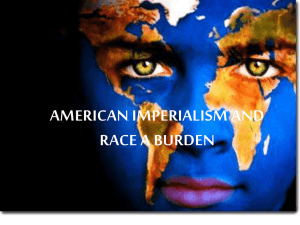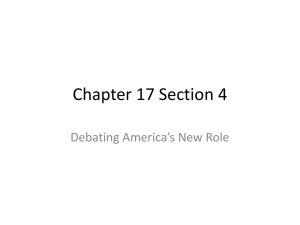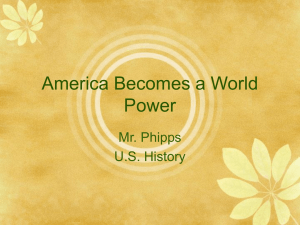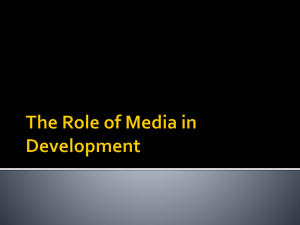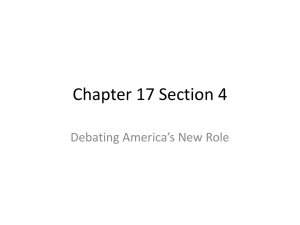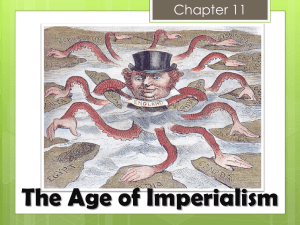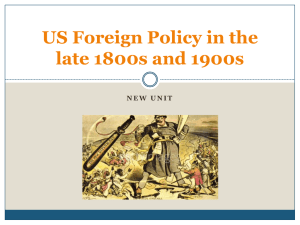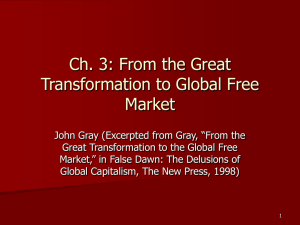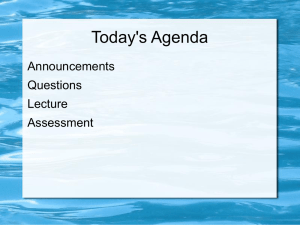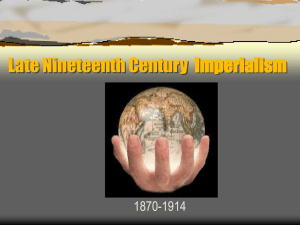Down with Imperialism.
advertisement
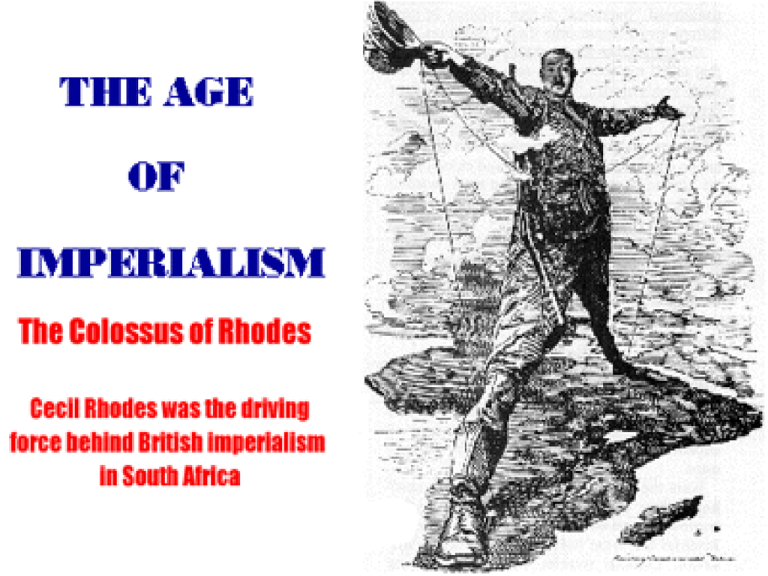
Imperialism Coined in the late 19th Century to describe British political policies that supported the British Colonial Empire, has come to refer to empire building policies in general. Characteristics of Colonialism • Involves a scenario of discovery and the assumption by the colonizer that the discovered land and peoples are "virgin," "uncivilized" territory. • Colonizer • Views self as an objective observer • Views self as semi-divine protector, paternal figure • Has a sense of (civilizing) mission • Views self as an individualist • Has an economic imperative • Self-declared authority and authorship • Renames, re-orders space • Equates colonization with progress • A relationship between colonizer and colonized that involves sustained exploitation • Widespread and constant use of a variety of forms of violence and force for control of Others. “Down with Imperialism.” Economic Characterized by an imposed "modern" economic system that creates dependence on the colonizers, especially relating to the exploitation of abundant natural resources present in the colonized territory by the colonizers. Religious Characterized by the imposition of one system (the colonizers' "true," "sacred" system) onto another (the natives' "false," "demonic" system) with prohibition of the original system. . Secretary Taft's Philippine themed dinner party, 1906, Library of Congress Prints and Photographs Division Washington. Geographical Characterized by the reorganization and policing of space and time to divide and deconstruct existing social and political structures. The British empire subjugated people across the world, including here in Burma in 1887. “Please, ‘m, ain’t we black enough to be cared for?” Uncle Sam watches as the "Goddess of Liberty" heralds freedom for Cuba, Puerto Rico and the Philippines. "You seem to have about finished your work of civilizing the Filipinos. About 8,000 of them have been civilized and sent to Heaven. I hope you like it.” - Andrew Carnegie, American industrialist and anti-imperialist, 1899 "Gee, but that's an awful stretch!" 1904 Mark Twain "The condition of things in the Congo is atrocious, as shown by the photographs of children whose hands have been cut off." "I am an anti-imperialist. I oppose putting the eagle's talons on any other land.“ The Verdict July 3, 1899 The Second Issue: The Advance of Imperialism. Left: British colonialist Cecil Rhodes stands astride Africa in an 1892 cartoon from Punch John Bull's Tanks Impose British Imperialism on India How does the image reflect European countries’ ideals on imperialism? Central Europe 1914 In 1914 Imperialism centered in London. Left: Advertisement for Pears' Soap entitled "Lightening the White Man's Burden." (McClure's Magazine, Oct. 1899); Denver Post, 1899. The Colored American by Bruce Grit (Wash, D.C.), Feb. 25, 1899 Why talk of the white man's burden; What burdens hath he borne That have not been shared by the black man From the day creation dawned? Why talk of the white man's burden, Why boast of the white man's power When the black man's load is heavier, And increasing every hour? Why taunt us with our weakness, Why boast of your brutal strength; Know ye not that the children of meekness Shall inherit the earth -- at length? "Take up the white man's burden!" What burdens doth he bear, That have not been borne with courage By brave men everywhere? Then why the white man's burden? What more doth he bear than we -The victims of his power and greed From the great lakes to the sea? Alfred Beit (1853-1906) A British South African gold and diamond magnate and supporter of British imperialism in Southern Africa. Japanese Imperialism Right: Behind the McDonald’s “Family Restaurant” in Colaba, Bombay. "Who controls the food supply controls the people; who controls the energy can control whole continents; who controls money can control the world." - Henry Kissinger, former U.S. Secretary of State
